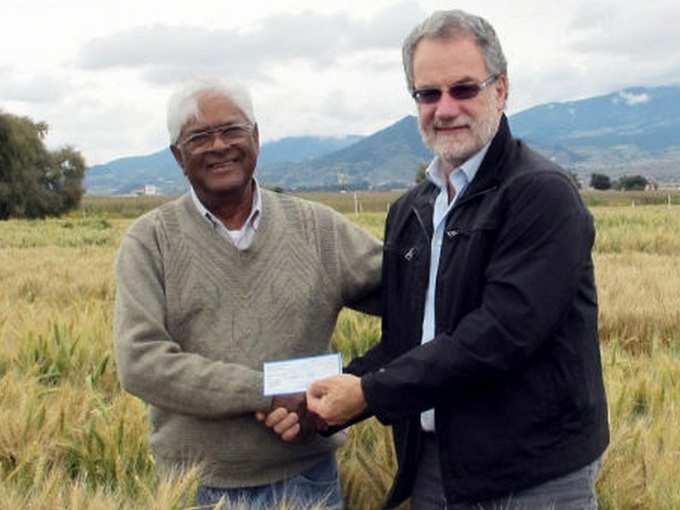 Sanjaya Rajaram
Sanjaya Rajaram, a 71-year-old
crop scientist, was named as the recipient of the 2014
World Food Prize. He was awarded $250,000 as prize by
Nobel Peace Prize laureate Norman Borlaug.
Rajaram, who was born in a small village in
Uttar Pradesh, began research work with Borlaug in 1969. He successfully crossed varieties of winter and spring wheat with his own plant breeding techniques. This led to the development of plants that have higher yields and dependability under a wide range of environments.
The
scientist, who is a citizen of
Mexico, is credited with developing 480 varieties of wheat that have been released in 51 countries.
“It’s a great honour. I am honoured that the
World Food Prize committee has recognized me for the work I have done,” said Rajaram. According to him, the next big challenge is developing plants with more drought tolerance, staving off the effects of salt water intrusion as oceans rise and other issues related to climate change.
Rajaram expanded upon his mentor Borlaug’s work with his own achievements, said
World Food Prize Foundation president
Kenneth Quinn.
“His breakthrough breeding technologies have had a far-reaching and significant impact in providing more food around the globe and alleviating world hunger,” said Quinn.
Quinn said it’s fitting that the prize be awarded to Rajaram as the Des Moines-based organization celebrates the centennial of Borlaug’s 1914 birth in Cresco, Iowa. Borlaug, who won the 1970 Nobel for boosting agricultural production in what has become known as the
Green Revolution, launched the World Food Prize in 1986.
The foundation also added Rajaram’s new varieties can be grown in marginal areas, such as small
mountain plots in Pakistan, remote areas in China and in the acidic soils of Brazil. Rajaram said he plans to give some of the money from the prize to private organisations in India who work with the poor and the remaining money could be used for plant breeding research.
(Image: azteca noticias)
